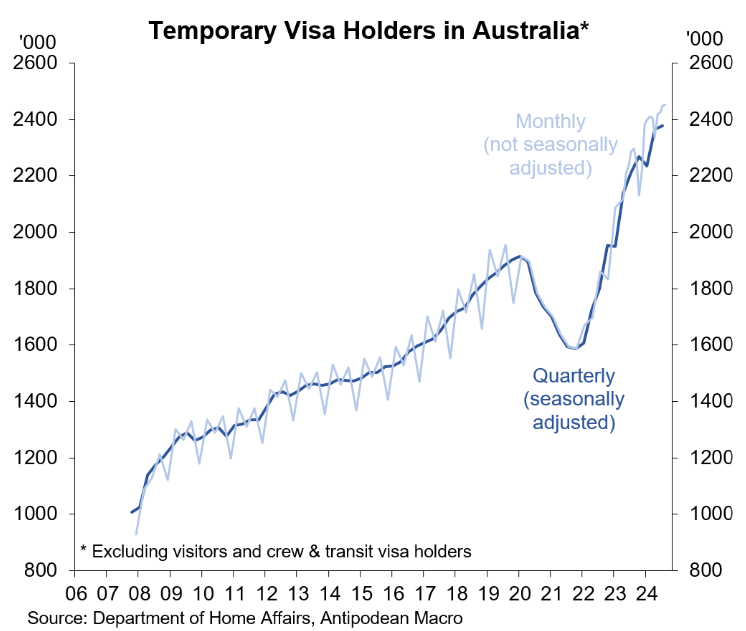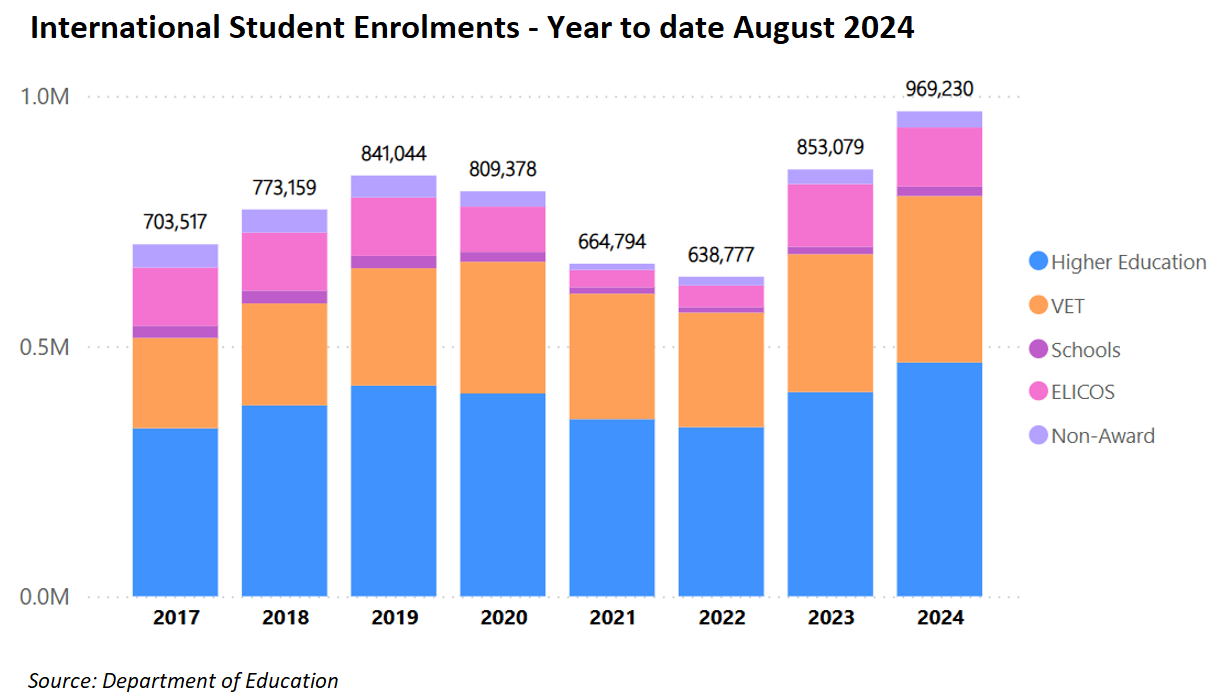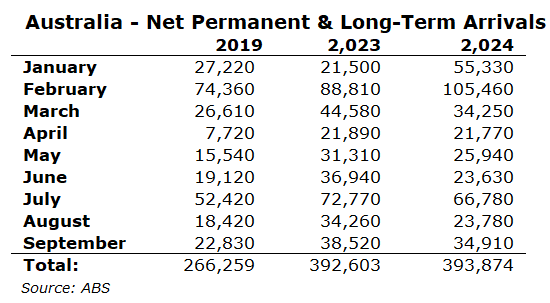Former Home Affairs Minister Clare O’Neil lamented that Australia’s migration system was too temporary and held the country back.
“Today, really for the first time in our modern history, our uncapped, unplanned temporary program is the centrepiece and driver of our migration system. This simple fact is the source of huge problems”, she said.
“In 2007, we had about one million temporary migrants in Australia, excluding visitor and transit visas. Today that number is 1.9 million”.
O’Neil then blamed the former Coalition government for the rise in temporary visas.
“It happened not through thoughtful planning and strategy, but by negligence and continental drift. And, this reliance on temporary migration is having enormous economic and social consequences”, O’Neil claimed.
“This focus on temporariness means that migrants cannot truly flourish”.
The irony of O’Neil’s remarks was that temporary migration has surged to unprecedented levels under Labor.
Justin Fabo from Antipodean Macro posted the following chart showing how the number of temporary visa holders in Australia (excluding tourists) hit a fresh record high in October:

As you can see, there were more than 2.4 million temporary visa holders in Australia in October, around 500,000 more than the 2019 pre-pandemic peak under the Coalition.
This comes as the latest data from the Department of Education shows that there were a record 969,230 international students enrolled in Australia in August 2024.

Separate permanent and long-term arrivals data from the Australian Bureau of Statistics (ABS) also shows that a record 393,900 net migrant arrivals landed in Australia over the first nine months of 2024.

Moreover, over the first three months of 2024–25, 125,500 net permanent and long-term arrivals have landed in Australia, which is almost half of the 260,000 net overseas migrants projected by the Albanese government for this financial year.
The reality is that the Albanese government undertook deliberate policy actions to increase immigration to record levels, including:
- Extending post-study graduate visas by two years, making student visas much more attractive (reversed earlier this year).
- Extending the number of hours that international students are permitted to work to 24 hours a week from 20 hours pre-pandemic.
- Spending $42 million to hire 500 additional staff at the Department of Home Affairs to approve visa applications.
- Issuing 207,568 pandemic event visas rather than shutting the visa down.
- Prioritising offshore visa applications over onshore.
- Signing migration deals with India.
As a result, the Albanese government is responsible for record immigration and the rental crisis.

